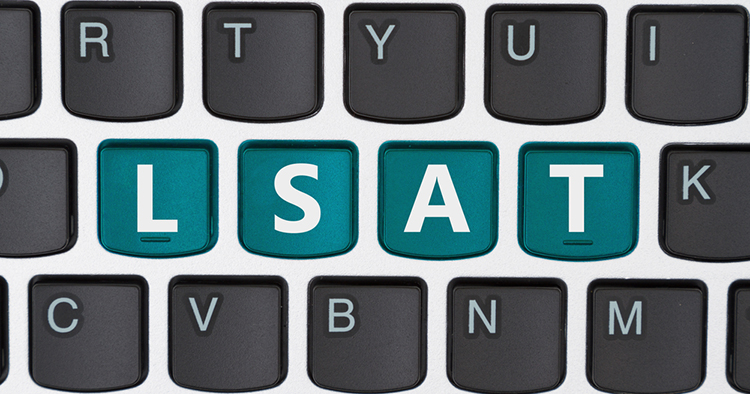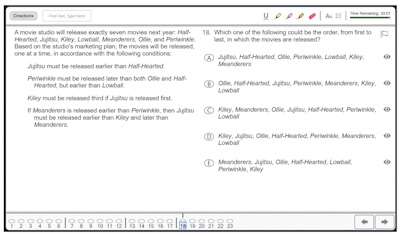LSAT scraps 'logic games' section, adds more logical reasoning

As of August 2024, the LSAT will no longer include the “logic games” section. Instead, test-takers will find a second scored logical reasoning section. Image from Shutterstock.
Updated: As of August 2024, the LSAT will no longer include the “logic games” section. Instead, test-takers will find a second scored logical reasoning section, the Law School Admission Council announced Wednesday.
The change comes after a 2019 settlement with two blind plaintiffs who said they were unable to draw diagrams to help answer the questions in the LSAT’s analytical reasoning section, commonly known as “logic games,” which involve deductive reasoning.
“Replacing the current logic games with a second LR section will ensure that the LSAT continues to assess the reasoning skills that are so important to the study and practice of law while eliminating the concerns that were raised about the use of diagramming,” wrote Susan Krinsky, the LSAC’s executive vice president for operations and chief of staff, in a letter sent to law school admissions leaders, deans and prelaw advisers and obtained by the ABA Journal.
The LSAC anticipates little impact on the test scores or on the test’s ability to predict first-year law school success, according to Krinsky.
“Analysis of over 200,000 test sessions found that the mean score changed by 1/100th of a point,” she added.
Adding a second logical reasoning section, part of the LSAT for decades, will have minimal impact on those now preparing for the August 2024 LSAT, Krinsky wrote.
 A screenshot of a free practice test. Image courtesy of the Law School Admission Council.
A screenshot of a free practice test. Image courtesy of the Law School Admission Council.
The switch adds “a degree of fairness and inclusion to the law school application process,” said Glen Stohr, lead instructional designer for test prep company Kaplan’s prelaw program, in a statement to the Journal, adding that “the majority of students find logic games the most challenging of all the exam’s sections.”
In addition, the August 2024 LSAT will have one scored reading comprehension section, plus one unscored section of reading comprehension or logical reasoning questions that will be pilot items for future use, according to Krinsky’s letter.
At the University of Kansas School of Law, Steven Freedman, associate dean of admissions, said he welcomes the change.
“Our sense is that the logical reasoning questions more closely resemble the kind of close text analytical analysis that we teach in law school than the prior ‘how many people on a life raft’ types of questions,” Freedman told the Journal in a statement. “We also support the effort to make the LSAT exam more accessible to test-takers.”
More information about the changes can be found at the LSAC’s website.
Updated Oct. 19 at 12:39 p.m. to add the statement from Steven Freedman at the University of Kansas School of Law.
Write a letter to the editor, share a story tip or update, or report an error.



